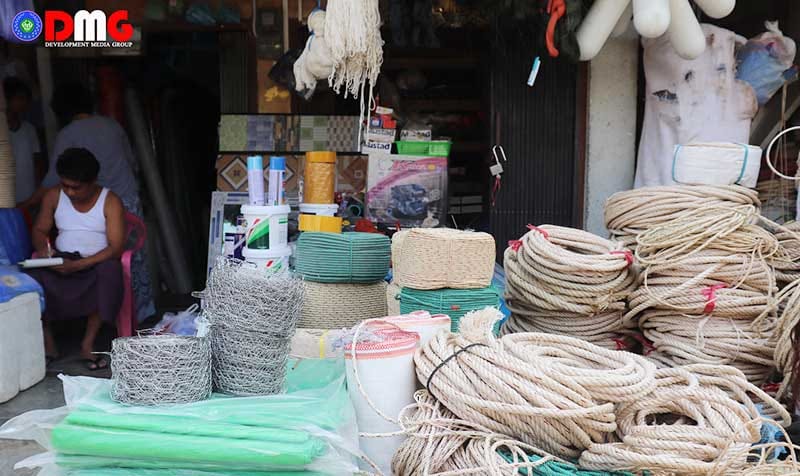- Weekly Highlights from Arakan State (Jan 26 to Feb 1, 2026)
- Arakanese youth stabbed in Mae Sot urgently needs financial aid for medical treatment
- Five years on Myanmar faces uncertain military and political outlook after coup
- Myanmar Navy detains Pauktaw fishermen and demands ransom
- Junta Airstrikes on Arakan and the Consequences for Independent Media
Appreciating US dollar pushes up construction materials prices
Construction materials costs in Arakan State have risen by as much as a third due to the sharp rise in the value of the US dollar, according to industry stakeholders.
25 Sep 2021

DMG Newsroom
25 September 2021, Sittwe
Construction materials costs in Arakan State have risen by as much as a third due to the sharp rise in the value of the US dollar, according to industry stakeholders.
Construction material dealers say prices have skyrocketed as the US dollar has appreciated, given that many construction materials are imported from abroad.
“As the US dollar rose, so did the price of construction materials. Previously, a small piece of plywood was only K18,500, but now it has risen to K23,000,” said Ma Nan Mrat San, a construction materials dealer.
With the exception of cement, the prices of almost all construction materials are up more than 35 percent, she added.
Ko Aye Naing, a construction materials dealer, said that as the price of construction materials has risen, former credit arrangements are no longer acceptable for some who prefer cash-based transactions.
“As the price of construction materials went up, we used to buy on credit for about a month in the past. With the recent rise in the value of the dollar, companies are selling on a cash basis. We had difficulties withdrawing money from the bank,” he explained.
“When the price of construction materials goes up, construction materials dealers lose trust,” said U Hla Maung, chairman of the Arakan State Construction Entrepreneurs Association. “Construction material retailers and contractors are interdependent. But with the rising cost of construction materials, construction material retailers are reluctant to sell on credit. We are facing such difficulties.”
Due to the industry’s current struggles, some construction material retailers and construction companies have been temporarily shut down, according to businesspeople. Despite these difficulties, construction developers say they continue to operate, in consideration of the workers who depend on them for a wage.















.jpg)

